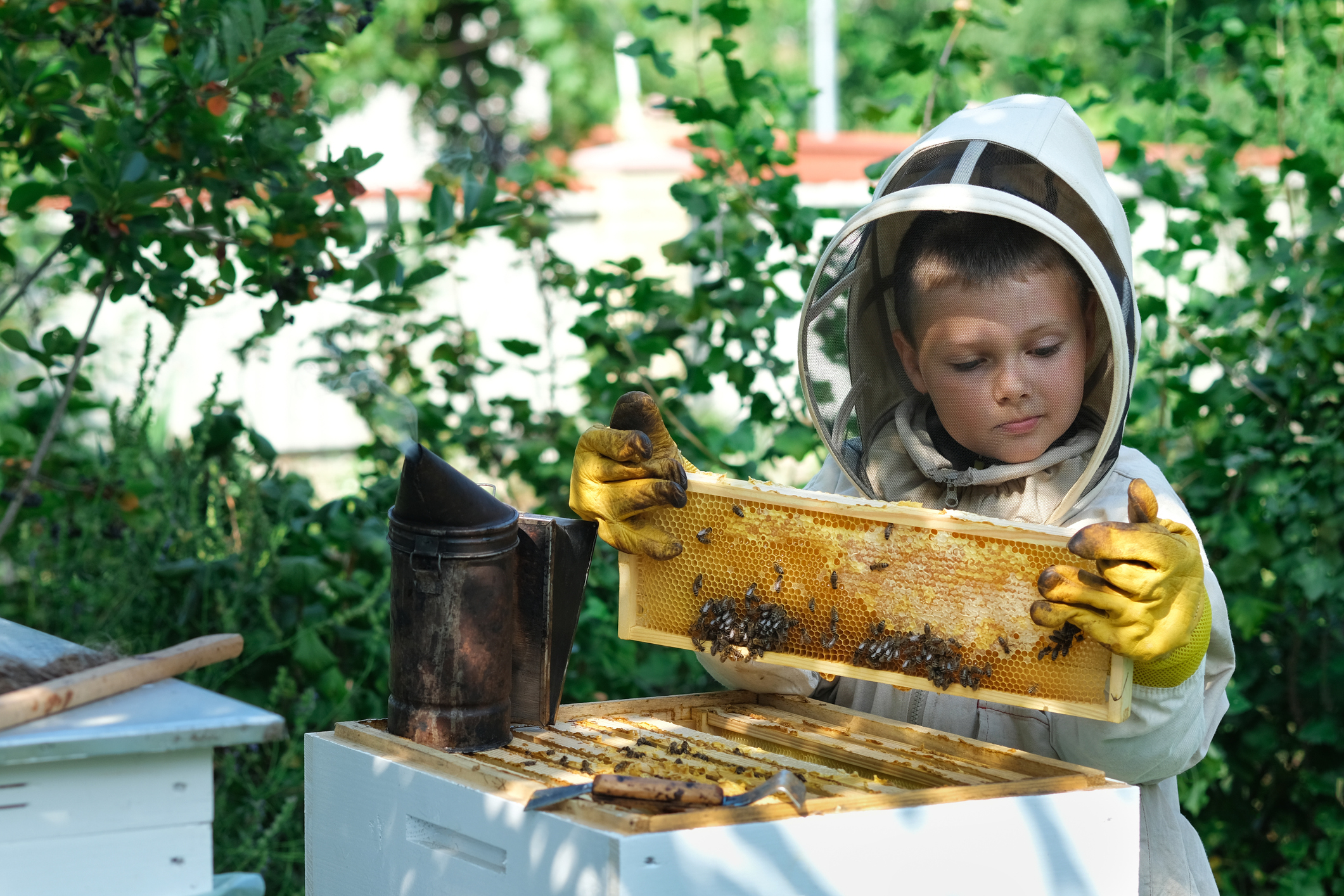Visit these honey farms to teach your kids about bees
Apart from the fact that bees bring delicious farm-to-table honey, many animals rely on bees for their survival because their food sources rely on insect pollination.
Pollination also allows floral growth, which creates a habitat for certain animals like other insects and birds. The honey that bees produce also serves as food for many animals.
The decline of bees results in the decline of pollination, healthy habitats and food, which is why it is so important to create awareness and teach our children about protecting these keystone creatures.
Honeybee Heroes, Stanford
Willowdale Farm, a mere 30 minutes from Hermanus and a quick drive from Stanford, is the perfect spot to unplug and reconnect with nature while also learning more about bees. It’s also a wonderful opportunity to give back.
When you visit the farm, the Honeybee Heroes team will give you the opportunity to suit up and visit their bees. They will show you how to care for the hives and you’ll even get the chance to extract a bottle of fresh honey.
After mingling with the bees, you and your family can visit the farm’s sculpture garden where you can also enjoy a tasting of Honeybee Heroes’ honey on freshly baked sourdoughs and ciabattas, paired with cheese from the local Stonehouse cheesery and a bottle of red wine from Lomond Wine Estate, which is just down the road.
You’ll be taken through the varying textures and flavour profiles of the honey harvested from different locations on the property.
If you’re unable to visit the farm this holiday, you can always adopt a hive. They have special Christmas packages too (of which the adoptions need to be made by 12 December if you’d like your Honeybee Heroes gift box to arrive in time for Christmas).
When you adopt a hive, the Honeybee Heroes team will brand it with your name and place it in a permanent location, caring for it once a colony of wild bees moves in. With each adoption, you will receive a personalised adoption kit, including six jars of raw Honeybee Heroes honey, an adoption certificate and frequent updates on your hive.
ALSO READ: Six of the best riverside campsites in SA
Learn about bees at Apiarista, Port Elizabeth
This honey farm and its coffee shop bring visitors a unique, educational farm experience while keeping their main focus on beekeeping, bottling their own produce and educating people who visit the farm. It’s a place where bees and coffee collide, welcoming visitors from all over the country.
The owners’ heart is to educate people on how the bees and other farm related things work. Apiarista takes visitors on tours where they can learn more about the fascinating life of a honeybee.
They offer an adventurous hands-on hive-to-honey bee experience where you get to go out to the hives and harvest your own honey to take home. Their Boma Experience offers groups an opportunity to watch the beekeeper’s demonstration from the safe side of the net and this experience is often offered to school groups that want to learn more about bees.

Farmer Redbeard Micro Adventures, Wilde Paarde Kloof
Farmer Redbeard shares his insights on beekeeping during a fun family beekeeping weekend. The micro adventure is open to families with children from the age of seven and the weekend programme is packed with adventure, fun and timeout for those need a quiet place to unwind.
Stay in one of their lovely self-catering farmhouses and enjoy a weekend of tractor rides, beekeeping, honey tasting, South African cuisine, historical walks and more.
Honey Bee Education and Party Farm, Johannesburg
If you’re looking for an educational outing for school groups, home-school networking groups or even just your family, Honey Bee Education and Party Farm is another great option to teach kids about bees.
They focus on education, especially on the African honeybee and it is an outing for all ages. They offer tours where you can watch the bees do what they do best in an observation hive and they make the experience fun by letting the kids dress up, offering honey tastings and tours through their honey extraction room and more.
With bees forming such an important part of the ecosystem, teaching the younger generations about their role as keystone creatures is something that should be non-negotiable.

